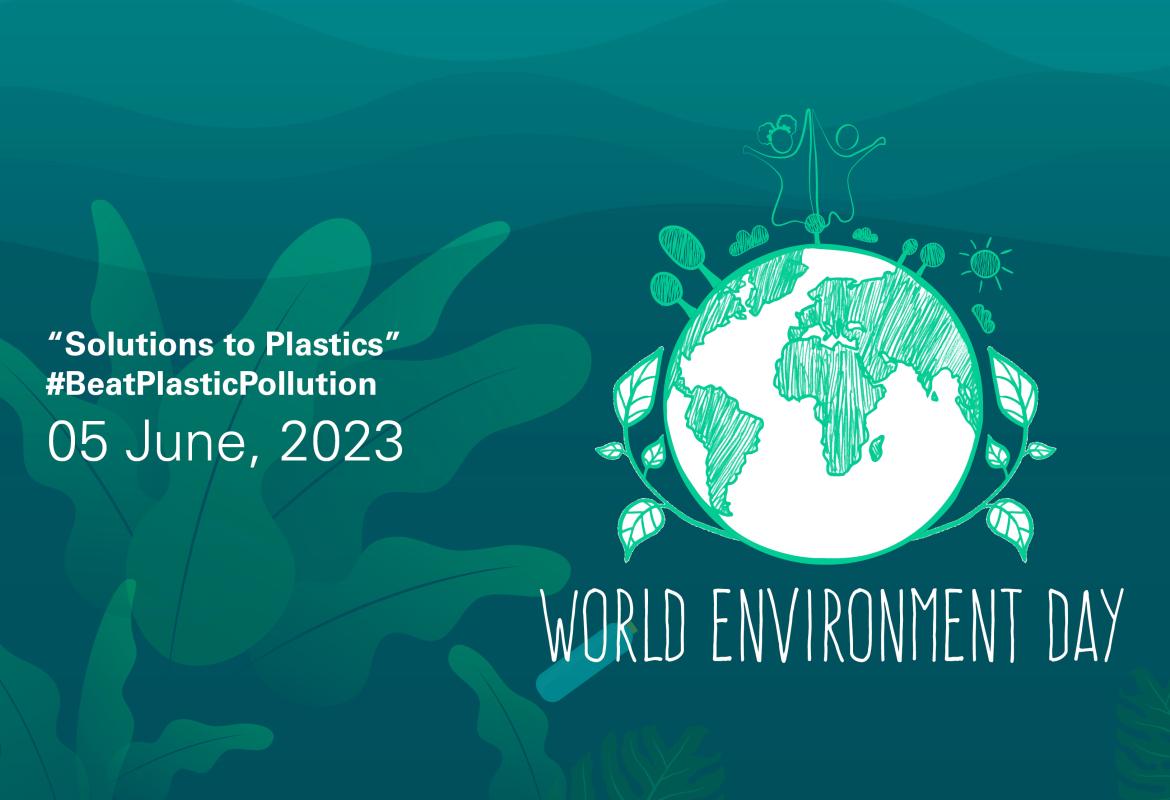In 1973, the United Nations General Assembly designated June 5th as World Environment Day to emphasise the importance of preserving and promoting environmental integrity. Hence, today marks the 50th anniversary of this auspicious milestone, which is celebrated following the recent adoption by the UN General Assembly of the right to a healthy and clean environment for everyone including children. In recognition of this, the African Committee of Experts on the Rights and Welfare of the Child (ACERWC or the Committee) Working Group on Climate Change and Children’s Rights (Working Group) joins the global community in celebrating World Environment Day and welcomes the chosen theme for the year, which urges all relevant stakeholders to explore “Solutions to Plastic Pollution”. Notably, the Committee congratulates the Republic of Côte d’Ivoire for hosting World Environment Day this year, as well as leading by example by banning the use of plastic bags since 2014 and promoting a shift to reusable packaging.
The Committee, through its Working Group, notes with concern that available evidence suggests that plastic pollution poses a major threat to both the environment and children’s rights, particularly the right to health. The Committee expresses deep concern that this, coupled with the fact that children do not always have equal opportunities to exercise their right to information, participation and access to remedies, may exacerbate existing environmental injustices. Therefore, the Committee emphasizes that addressing the negative implications of the plastic pollution on children's rights and formulating effective solutions to the global plastic crisis necessitates incorporating a child rights-based approach that promotes children's best interests and life, survival, and development, reduces inequalities and ensures child participation.
In light of the above and reiterating the provisions of the African Charter on the Rights and Welfare of the Child (ACRWC or the Charter) and its General Principles, the Committee reminds Member States of their obligation to adhere to the principle of the best interests of the child articulated in the Charter, and take into account the specific vulnerabilities of children to environmental hazards brought on by plastic pollution in the design and implementation of solutions to plastic pollution. The Committee further emphasizes that plastic pollution is inherently incompatible with the principle of ensuring a child's life, survival, and development, and that upholding this principle demands tackling this looming crisis and seeking sustainable solutions. The Committee further underscores that when children are empowered and included in decision-making at all levels, they can be a powerful catalyst for environmental change. In this context, the Committee stresses the importance of child participation and access to information, which are crucial for meaningful engagement by children. Moreover, the Committee recognises that certain groups of children are more vulnerable to plastic pollution and therefore require specific consideration, such as those who are economically and socially marginalised or exposed to dumping site, children in informal settlements or children living in coastal areas.
In light of the above and recalling the provisions outlined in the ACRWC, which require States to guarantee every child’s rights to life, survival, and development (article 5), the attainment of the highest feasible standard of health, access to clean water, and adequate sanitation (article 14), non-discrimination (article 3), child participation (article 4), Aspirations 4, 5 and 10 of Agenda 2040, as well as the objectives outlined in Sustainable Development Goals 14, 6, 3 and 12 and their accompanying targets aimed at conservation of and sustainable use of oceans, seas and marine resources, reduction of pollution and its impacts on health, the elimination of dumping practices, and the responsible management of hazardous chemicals and waste throughout their entire life cycle, the Committee avails itself of this opportunity to urge Member States to:
- Establish and implement effective and robust frameworks to regulate the manufacturing, use and disposal of plastics to ensure a cleaner and healthier environment for today’s children and future generations, including through the participation of children;
- Adhere to the principle of the best interests of the child as articulated by the ACRWC by taking into account the specific vulnerabilities of children to plastic pollution in devising solutions;
- Educate children and youth about the negative effects of the plastic cycle on present and future generations, by among others, ensuring access to child-friendly information;
- Uphold the principle of non-discrimination in the development and implementation of solutions to plastic pollution, paying particular attention to those groups of children disproportionately affected by plastic pollution;
- Collaborate with relevant stakeholders, including CSOs, and business sectors to address the pervasive challenge of plastic pollution, including through international cooperation and sharing best practices.
The Committee further calls upon the international community, CSOs and other stakeholders to:
- Bolster African nations’ capacity to better manage plastic waste and promote sustainable alternatives, through the provision of financial and technical assistance;
- Advocate for policy and systemic changes, as well as innovative and sustainable solutions to plastics;
- Generate evidenced-based information on the impacts of plastic pollution on the rights of children and the environment at large;
- Promote behavioural change among children and communities by raising awareness about the environmental and health hazards of the production, use and disposal of plastics.
Done in Maseru, Kingdom of Lesotho
5 June 2023







